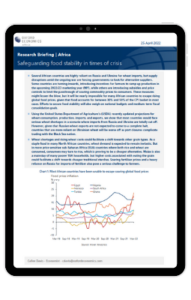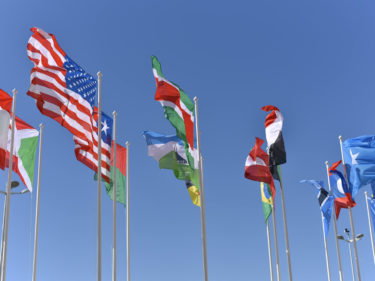Research Briefing
| Apr 26, 2022
Africa safeguarding food stability in times of crisis

The Russia-Ukraine war is set to have serious implications for wheat supply and food stability in Africa. Despite efforts by governments to limit the passthrough of rising commodity prices to consumers, it will be nearly impossible for many African countries to escape rising global food prices, given that food accounts for between 30% and 50% of the CPI basket in most cases.
What you will learn:
- Using the United States Department of Agriculture’s (USDA) recently updated projections for wheat consumption, production, imports, and exports, we show that most countries would face serious wheat shortages in a scenario where imports from Russia and Ukraine are totally cut off.
- Supply disruptions amid the ongoing war are forcing governments to look for alternative suppliers. Some countries are turning inwards, introducing incentives for farmers to ramp up production in the upcoming 2022/23 marketing year (MY), while others are introducing subsidies and price controls to limit the passthrough of soaring commodity prices to consumers.
- Wheat shortages and rising wheat costs could facilitate a shift towards other grain types. Wheat demand is expected to remain inelastic in North African countries (where wheat is a staple food), but consumers in more price sensitive sub-Saharan Africa (SSA) countries could shift towards other grain types.
Tags:
Related Services

Service
Global Economic Model
Our Global Economic Model provides a rigorous and consistent structure for forecasting and testing scenarios.
Find Out More
